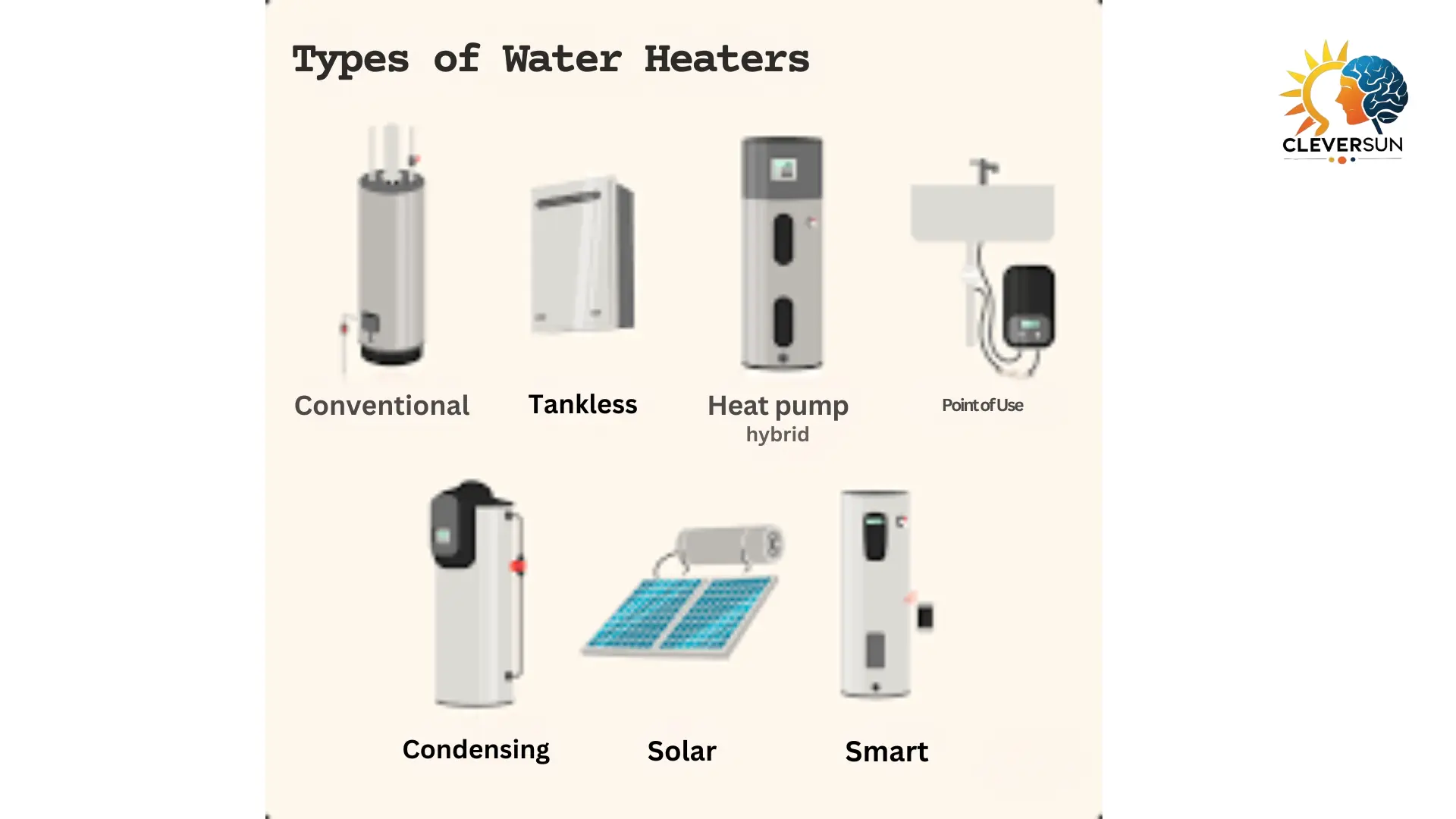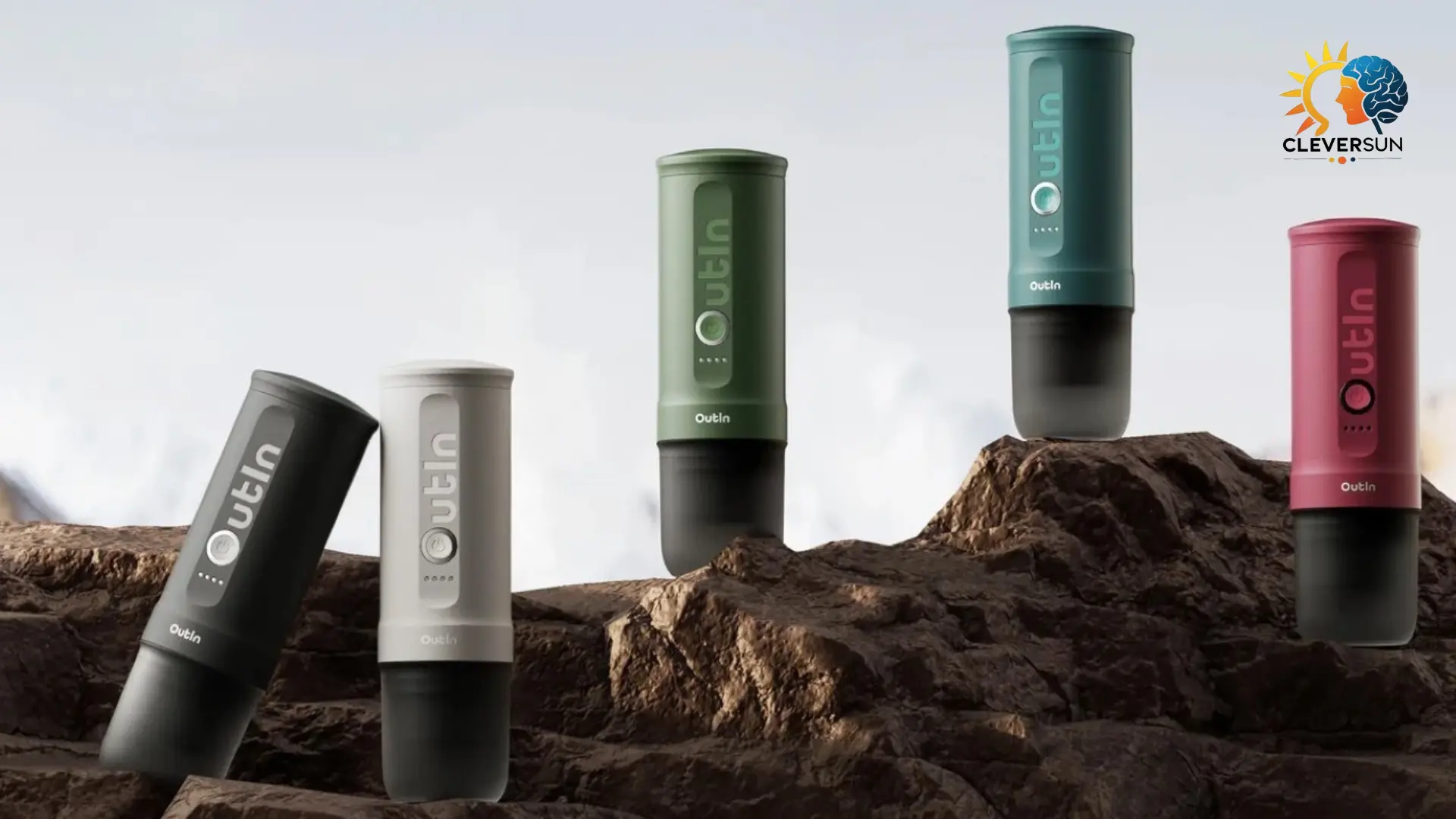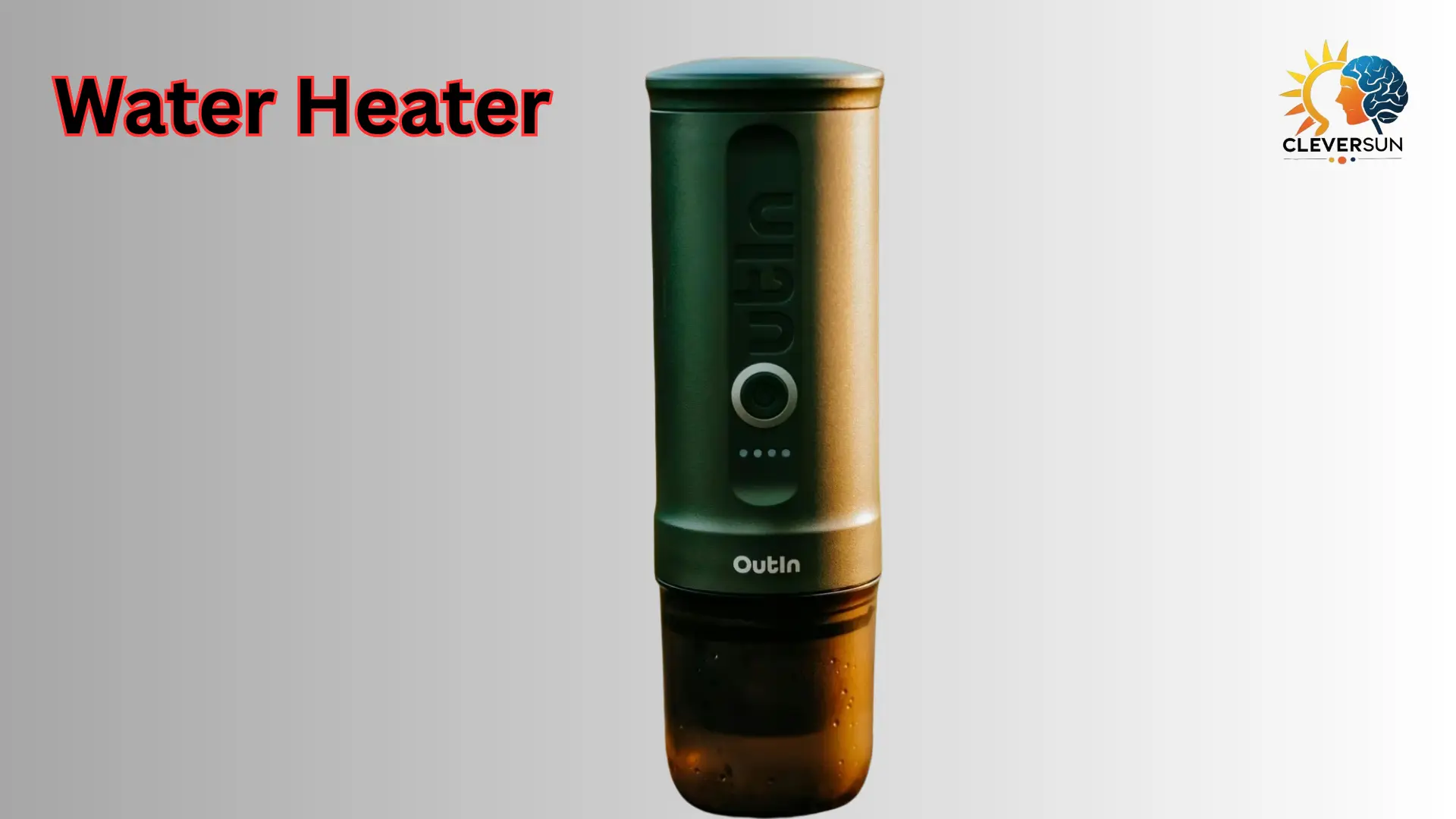Water Heater
Introduction
A water heater is a home appliance that heats water for daily use. Hot water is needed for many activities such as bathing, washing clothes, cleaning dishes, and cooking. Without a water heater, you would have to boil water manually using a stove or electric kettle, which takes more time and effort. A water heater provides a faster, easier, and more convenient way to get hot water whenever you need it.
Water heaters are used not only in homes but also in hotels, hospitals, offices, and factories. They are available in different designs and sizes, so you can choose one that fits your needs and budget. A good water heater can last for many years if it is properly installed and maintained.
Types of Water Heaters

Water heaters come in several types. The right type for you depends on your needs, location, and budget. Each type has its own way of heating water and different pros and cons.
Tank Water Heaters
Tank water heaters are the most common type in many homes. They store hot water in a large insulated tank. The water stays warm until it is used. The tank size can range from 20 gallons to over 80 gallons. These heaters use either electricity or gas to keep the water hot.
Advantages:
-
Affordable and widely available.
-
Simple installation process.
-
Can supply hot water to multiple taps at the same time.
Disadvantages:
-
Takes up a lot of space.
-
Uses more energy because it keeps the water hot all the time.
-
If the hot water runs out, you have to wait for the tank to refill and reheat.
Tankless Water Heaters
Tankless water heaters, also called on-demand water heaters, do not store water. They heat water only when you turn on the tap. This means you get hot water instantly and do not have to wait for a tank to heat up.
Advantages:
-
Saves space because it is compact.
-
Uses less energy since it only heats water when needed.
-
Provides an unlimited supply of hot water.
Disadvantages:
-
Higher installation cost.
-
Can only supply a limited amount of hot water at once, so multiple taps may affect performance.
Solar Water Heaters
Solar water heaters use sunlight to heat water. They have solar panels or collectors placed on the roof to capture the sun’s energy. The heated water is then stored in a tank for use.
Advantages:
-
Very eco-friendly and reduces carbon emissions.
-
Can lower your electricity or gas bills.
-
Works well in sunny regions.
Disadvantages:
-
High initial cost.
-
Less effective during cloudy or rainy days without a backup system.
Heat Pump Water Heaters
Heat pump water heaters use heat from the air or ground to warm the water. Instead of generating heat directly, they move heat from one place to another, which uses less electricity.
Advantages:
-
Highly energy-efficient and cost-effective over time.
-
Produces less greenhouse gas compared to regular electric heaters.
Disadvantages:
-
Requires more space for installation.
-
Works best in warm climates.
How a Water Heater Works
Although there are different types of water heaters, they all follow the same basic principle. They use a heating source to raise the temperature of cold water and store or deliver it for use.
In electric tank heaters, heating elements inside the tank warm the water. A thermostat measures the temperature and turns the heating element on or off as needed. In gas tank heaters, a burner at the bottom of the tank heats the water, and a flue removes the exhaust gases.
In tankless models, water passes through heating coils or burners as it flows to the tap. This heats the water instantly without storing it.
In solar systems, sunlight heats the water in collectors, and then it moves to a storage tank.
In heat pump systems, the pump takes heat from the air or ground and transfers it to the water.
Choosing the Right Water Heater

Before buying a water heater, you should think about several important factors.
Household Size
A large family needs more hot water than a small family. A tank heater with a bigger capacity or a high-flow tankless heater will be better for large households. Small households can save money with a smaller tank or compact tankless model.
Energy Efficiency
Energy-efficient water heaters use less electricity or gas, which saves money in the long run. Look for heaters with high energy ratings or the ENERGY STAR label.
Installation Cost
Some types, like solar and tankless heaters, cost more to install but save money over time. Traditional tank heaters have lower upfront costs but may cost more to run.
Water Usage
If you use a lot of hot water for showers, laundry, and dishwashing, you need a model that can meet those needs without running out of hot water.
Maintenance Tips for Long Life
Proper care and maintenance can extend the life of your water heater and keep it running efficiently.
Regular Cleaning
Over time, minerals from the water can build up inside the tank. Cleaning helps prevent damage and keeps the water heater efficient.
Check Temperature Settings
Set your water heater to about 120°F (49°C). This is hot enough for daily use and helps save energy while preventing burns.
Flush the Tank
Sediment buildup at the bottom of the tank can make the heater work harder. Flushing the tank once or twice a year can remove this sediment.
Inspect for Leaks
Small leaks can turn into big problems if ignored. Check the tank, valves, and pipes regularly for signs of leaks.
Common Water Heater Problems and Solutions
Even a well-maintained water heater can develop problems.
No Hot Water
This may be due to a power supply issue, gas connection problem, or faulty thermostat. Check these parts before calling a technician.
Leaks
Leaks can be caused by loose fittings, damaged pipes, or corrosion. Small leaks can often be fixed, but a leaking tank usually means the heater needs replacement.
Strange Noises
Popping or rumbling sounds usually mean there is sediment buildup. Flushing the tank can fix this.
Rusty Water
If the hot water looks rusty, the inside of the tank may be corroding. This often means the heater is near the end of its life.
Energy-Saving Tips
A water heater can use a large amount of energy every month. However, you can lower your energy bills and make your water heater last longer by following some simple tips.
Lower the Temperature
Most water heaters are set to 140°F (60°C) by default. This temperature is higher than most households actually need. Lowering the thermostat to 120°F (49°C) is enough for most daily uses, like showers and washing dishes. This small change can save money every year. It also reduces the risk of scalding accidents and puts less strain on the heating system.
Use Insulation
A lot of heat is lost as water sits in the tank or travels through the pipes. You can reduce this heat loss by adding insulation. Wrapping the water heater tank in an insulating blanket can keep the water warm for longer, which means the heater will turn on less often. Insulating the first few feet of hot water pipes can also keep the water hotter as it moves to your taps.
Choose the Right Size
The size of your water heater matters. If it is too large for your household, it will keep heating more water than you need, wasting energy. If it is too small, it will run more often and may not supply enough hot water. Choosing the right size based on your household’s daily hot water use will make your system more efficient and save money.
Conclusion
A water heater is an important part of modern living. It provides hot water for comfort, hygiene, and convenience. With different types available, you can choose one that fits your home, budget, and lifestyle. By maintaining your water heater and using energy wisely, you can enjoy hot water for many years without high costs.

